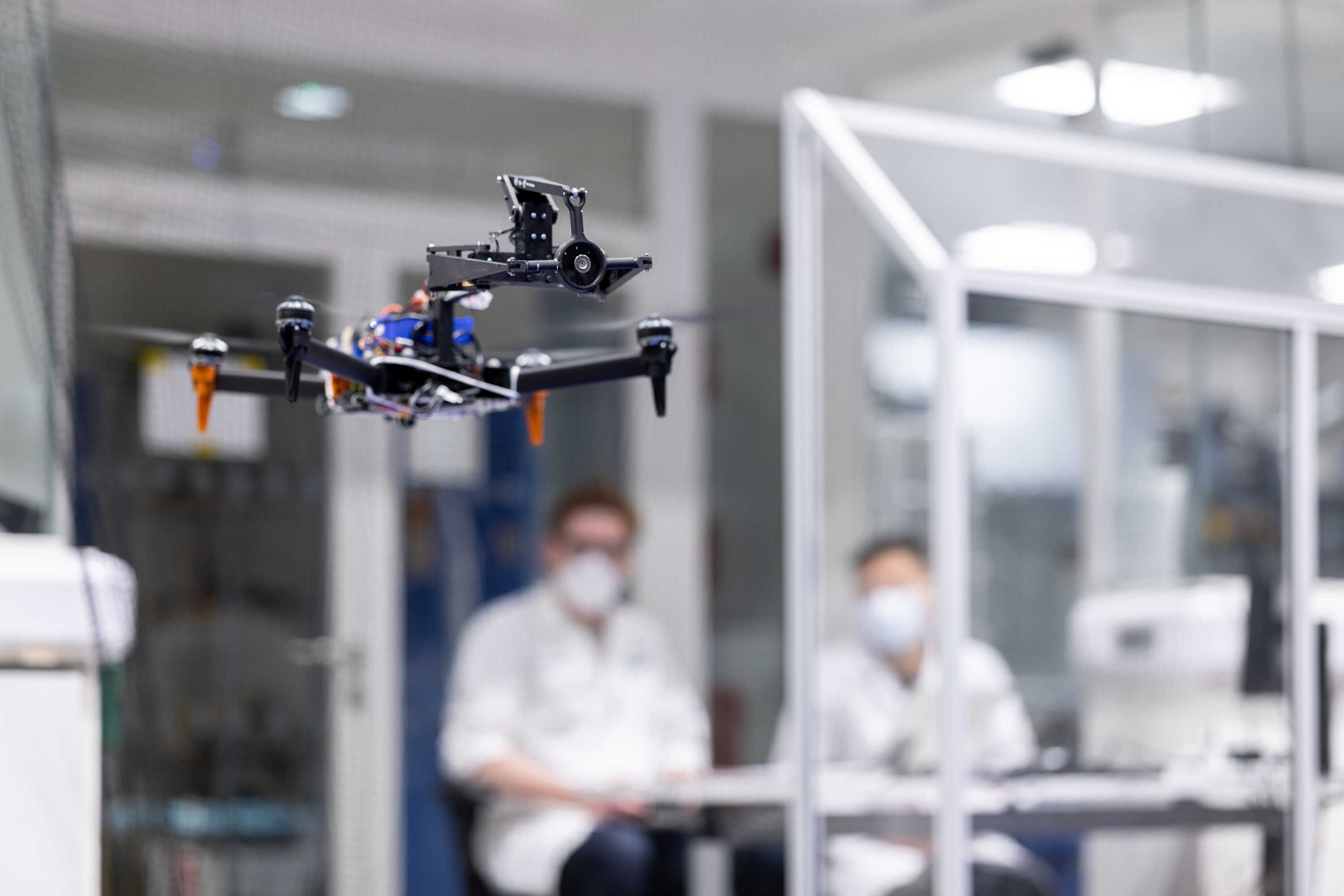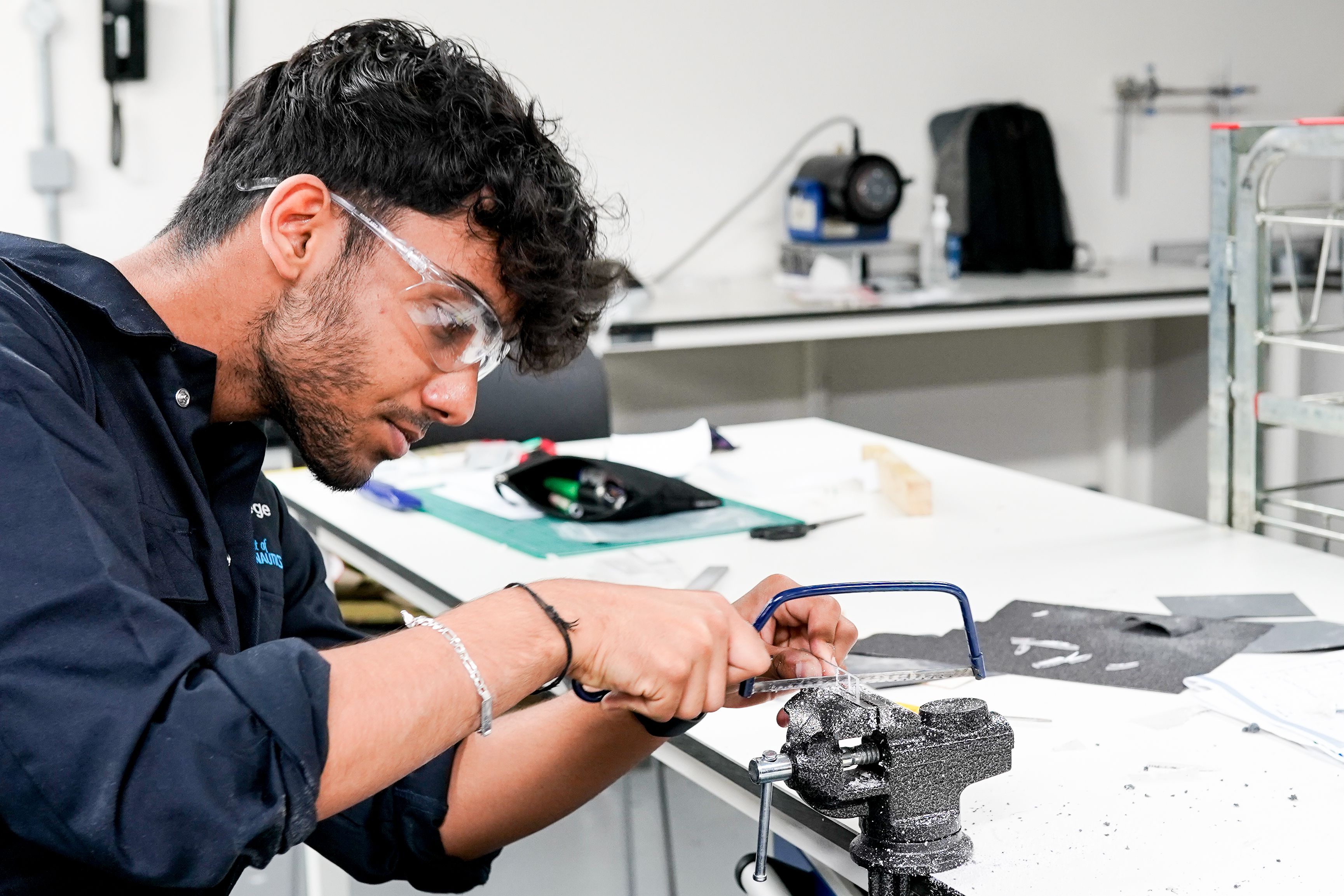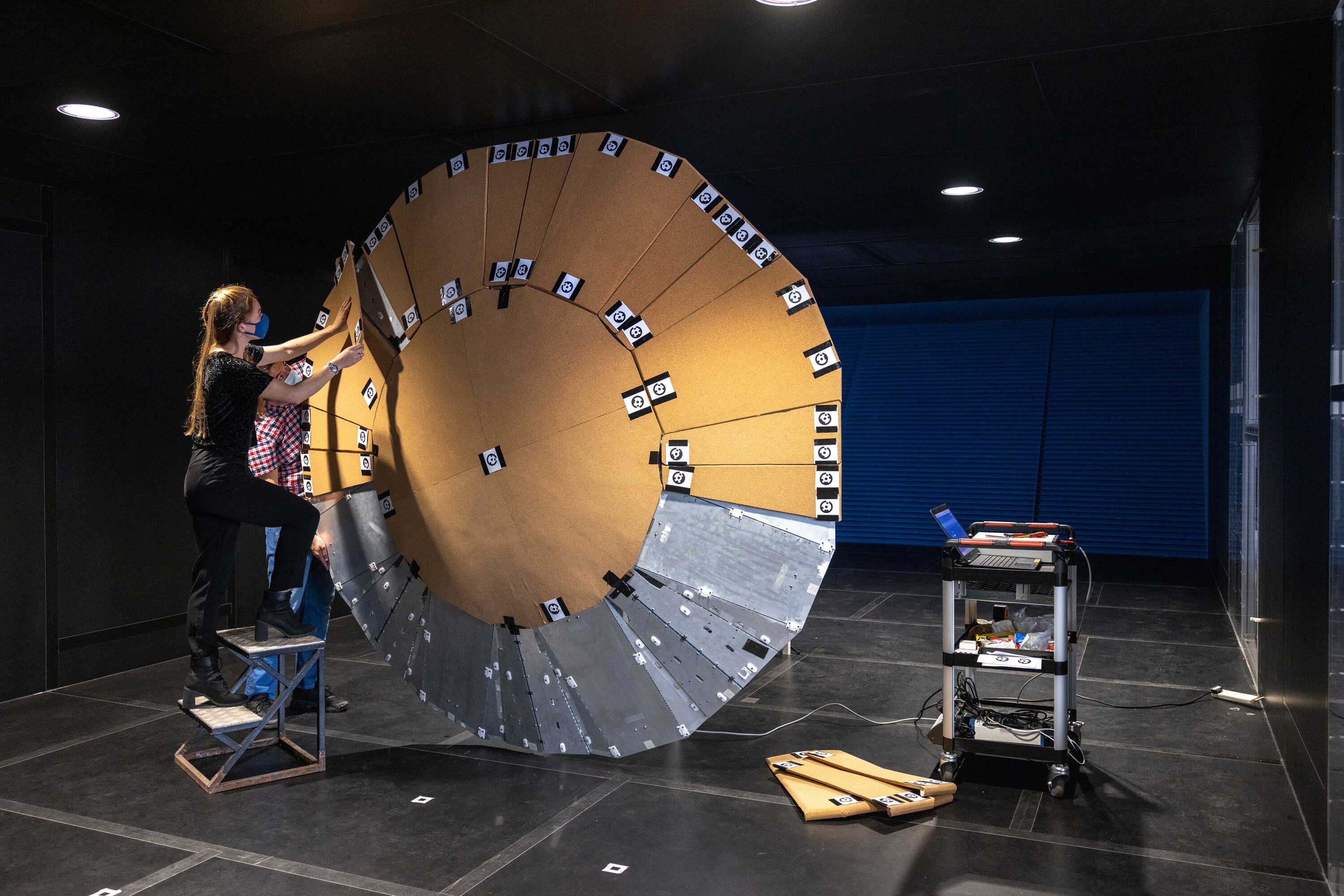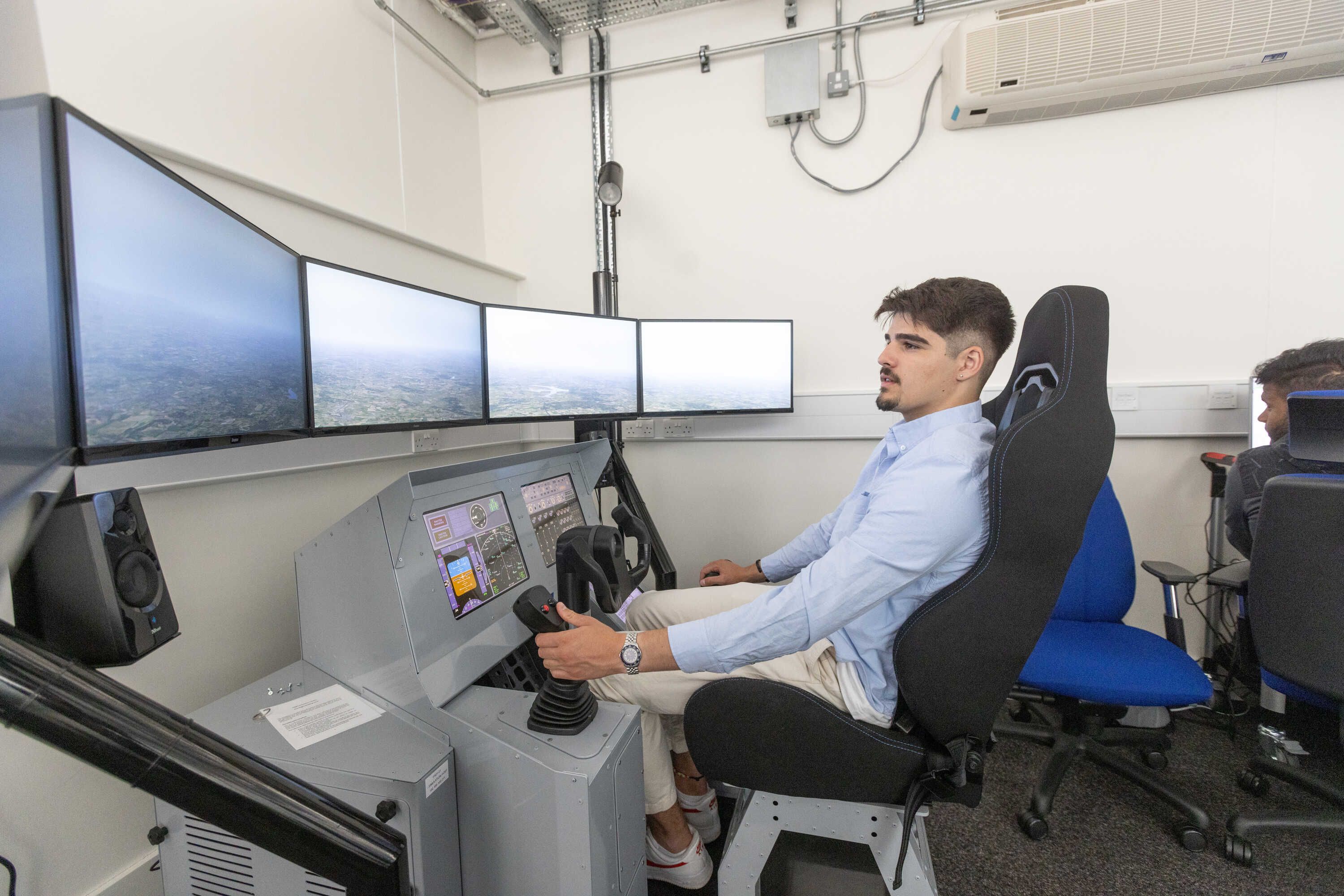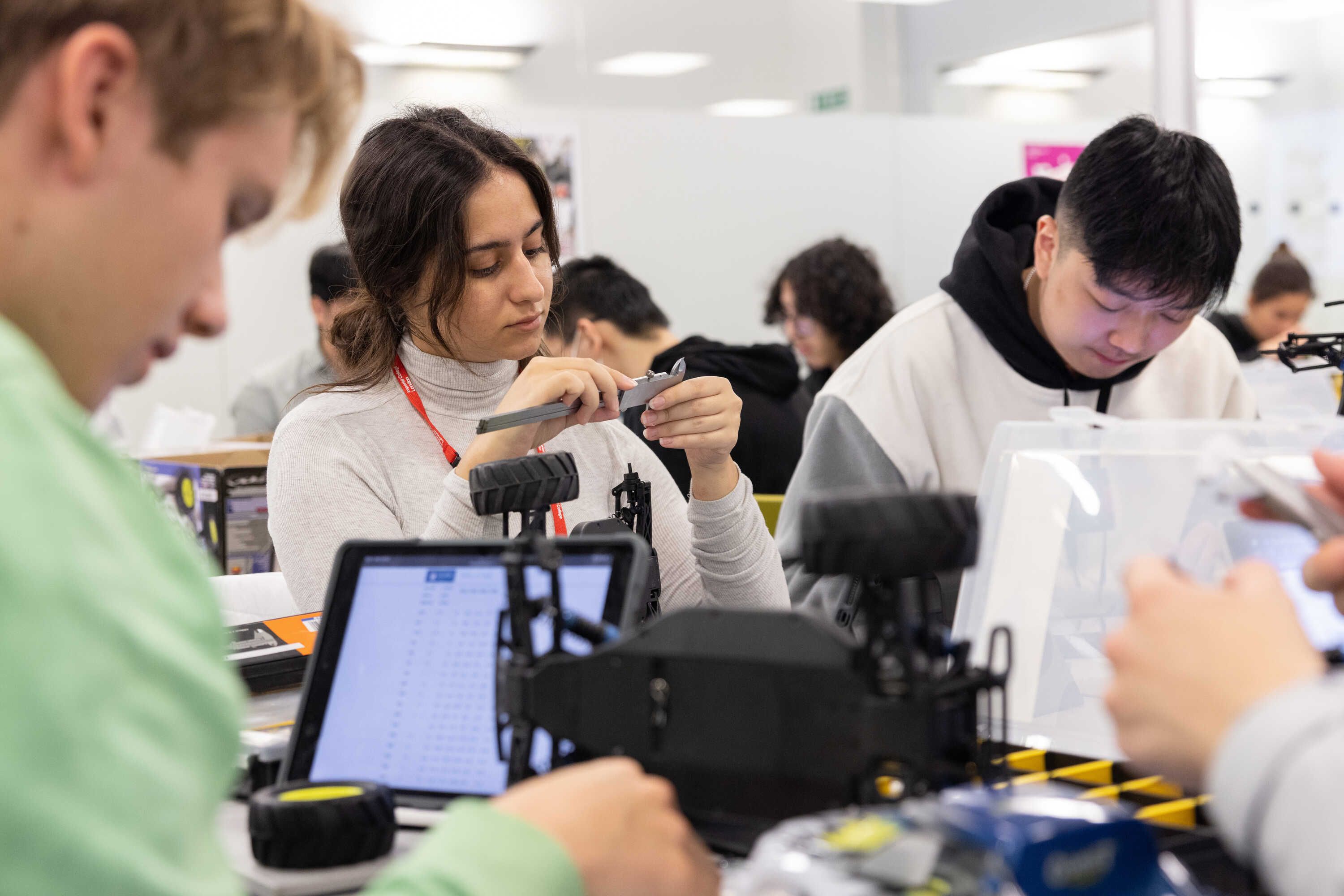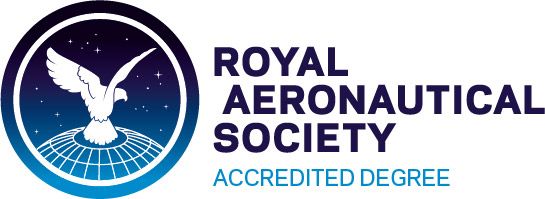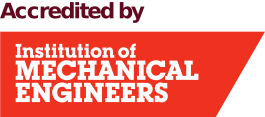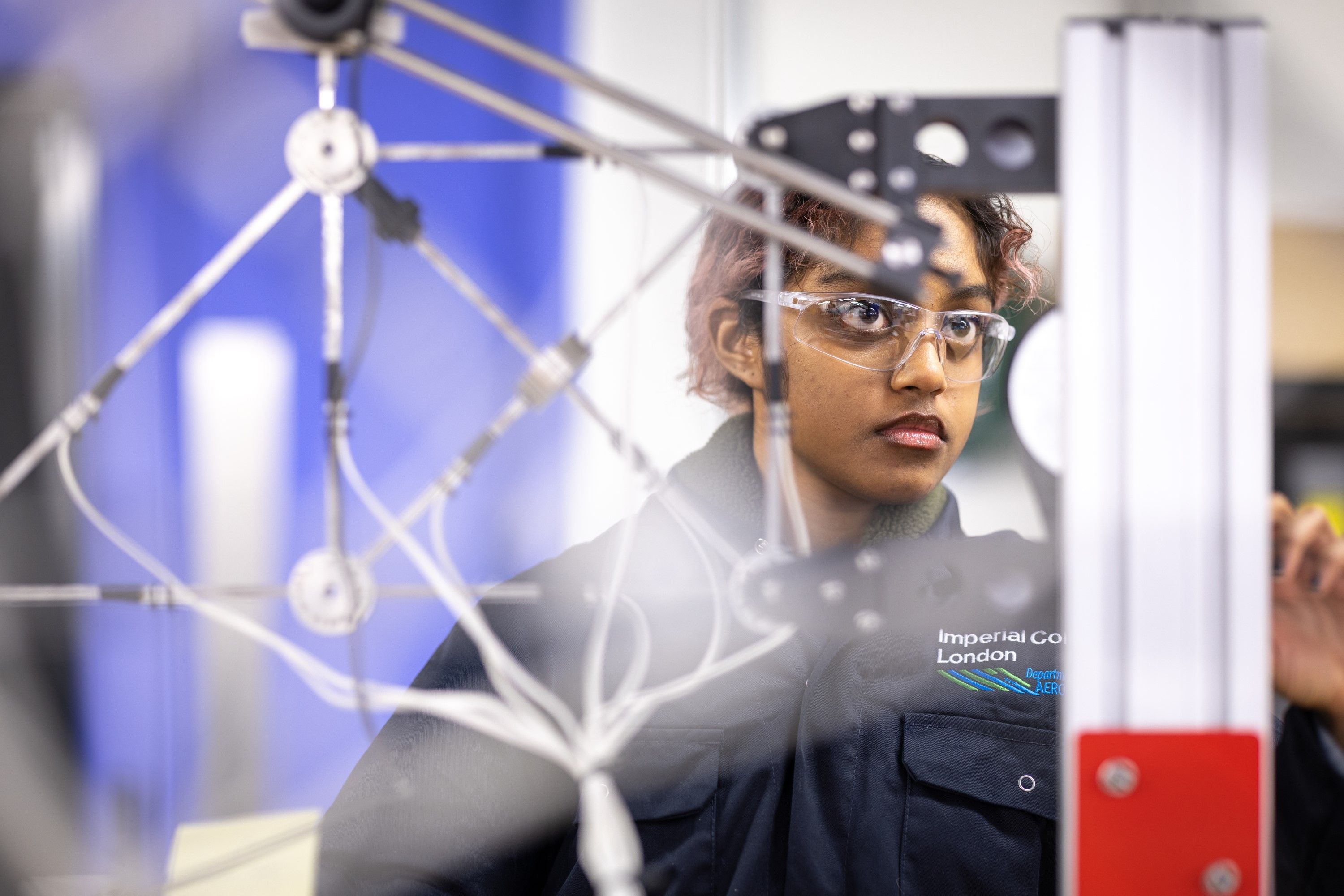
Aeronautical Engineering
Learn how vehicles and structures interact with air in this professionally accredited, integrated Master's degree.
Aeronautical Engineering with a Year Abroad (4 years)
Learn how vehicles and structures interact with air in this professionally accredited, integrated Master's degree.
Aeronautical Engineering with a Year Abroad (5 years)
Learn how vehicles and structures interact with air in this professionally accredited, integrated Master's degree.
Aeronautical Engineering with a Year in Industry
Learn how vehicles and structures interact with air in this professionally accredited, integrated Master's degree.
Train to become a future leader in aerospace and related engineering disciplines
Benefit from teaching enriched by an internationally leading research programme
Understand engineering practices through an optional year abroad or year in industry
Course key facts
-
Qualification
-
MEng
-
-
Duration
4 years
-
Start date
October 2025
-
UCAS course code
H401
-
Study mode
Full-time
-
Fees
£9,535 per year Home
£43,300 per year Overseas
-
Delivered by
-
Location
-
South Kensington
-
-
Applications: places
9 : 1 (2023)
Minimum entry standard
-
A*A*A or A*AAA (A-levels)
-
40 points (International Baccalaureate)
-
Qualification
-
MEng
-
-
Duration
4 years
-
Start date
October 2025
-
UCAS course code
Apply to H401
-
Study mode
Full-time
-
Fees
£9,535 per year Home
£43,300 per year Overseas
-
Delivered by
-
Location
-
South Kensington
-
-
Applications: places
9 : 1 (2023)
Minimum entry standard
-
A*A*A or A*AAA (A-levels)
-
40 points (International Baccalaureate)
-
Qualification
-
MEng
-
-
Duration
5 years
-
Start date
October 2025
-
UCAS course code
Apply to H401
-
Study mode
Full-time
-
Fees
£9,535 per year Home
£43,300 per year Overseas
-
Delivered by
-
Location
-
South Kensington
-
-
Applications: places
9 : 1 (2023)
Minimum entry standard
-
A*A*A or A*AAA (A-levels)
-
40 points (International Baccalaureate)
-
Qualification
-
MEng
-
-
Duration
5 years
-
Start date
October 2025
-
UCAS course code
Apply to H401
-
Study mode
Full-time
-
Fees
£9,535 per year Home
£43,300 per year Overseas
-
Delivered by
-
Location
-
South Kensington
-
-
Applications: places
9 : 1 (2023)
Minimum entry standard
-
A*A*A or A*AAA (A-levels)
-
40 points (International Baccalaureate)
Course overview
Develop engineering, computational, and analytical skills, as well as the specific knowledge and experience required for careers in the aerospace industry.
Before choosing to continue or transfer to another course, all students apply to this degree, MEng Aeronautical Engineering (H401).
You'll gain a solid understanding of aerodynamics, lightweight structures, and structural mechanics, as well as flight mechanics.
You will study mechatronics, flight mechanics, propulsion and turbomachinery during year two, as well as attend a flight-testing course at Cranfield University's National Flying Laboratory Centre.
In years three and four, you can choose from an extensive range of optional modules on specialist topics, allowing you to focus on aeronautical engineering areas of interest and access cutting-edge research.
A group project in year three gives you the chance to simulate the work of a design team to take a design concept through different stages.
During year four, you will complete a variety of advanced modules and an individual research project to allow you to pursue your own research.
Develop engineering, computational, and analytical skills, as well as the specific knowledge and experience required for careers in the aerospace industry.
You'll gain a solid understanding of aerodynamics, lightweight structures, and structural mechanics, as well as flight mechanics.
You will study mechatronics, flight mechanics, propulsion and turbomachinery during year two, as well as attend a flight-testing course at Cranfield University's National Flying Laboratory Centre.
You'll choose from a variety of optional modules on speciality topics in your third year.
A group project in year three gives you the chance to simulate the work of a design team to take a design concept through different stages.
During your final year, you'll carry out an integrated year abroad where you can challenge yourself academically and culturally.
In the four-year course, the year abroad replaces your final year at Imperial, with all of your studies carried out at the partner institution.
Develop engineering, computational, and analytical skills, as well as the specific knowledge and experience required for careers in the aerospace industry.
You'll gain a solid understanding of aerodynamics, lightweight structures, and structural mechanics, as well as flight mechanics.
You will study mechatronics, flight mechanics, propulsion and turbomachinery during year two, as well as attend a flight-testing course at Cranfield University's National Flying Laboratory Centre.
You'll choose from a variety of optional modules on speciality topics in your third, fourth and fifth years.
A group project in year three gives you the chance to simulate the work of a design team to take a design concept through different stages.
During your fourth year, you'll carry out an integrated year abroad where you can challenge yourself academically and culturally.
This allows you to experience the full undergraduate education at Imperial along with the chance to expand on it abroad. The institutions we partner with offer a wide range of specialised subjects to choose from.
The final year involves conducting a research project, either in conjunction with a Department's specialists and academics and their research group, or working with an internationally reputed engineering company.
Develop engineering, computational, and analytical skills, as well as the specific knowledge and experience required for careers in the aerospace industry.
Additionally, a year in industry also gives you a chance to consolidate your skills and learn from industry professionals.
You'll gain a solid understanding of aerodynamics, lightweight structures, and structural mechanics, as well as flight mechanics.
You will study mechatronics, flight mechanics, propulsion and turbomachinery during year two, as well as attend a flight-testing course at Cranfield University's National Flying Laboratory Centre.
You'll choose from a variety of optional modules on speciality topics in your third and fifth years.
A group project in year three gives you the chance to simulate the work of a design team to take a design concept through different stages.
Between the third and fourth years of your degree, you complete an industrial placement with an aircraft manufacturer or Formula 1 racing team.
The fifth year involves conducting a research project, either in conjunction with a Department's specialists and academics and their research group, or working with an internationally reputed engineering company.
Structure
This page is updated regularly to reflect the latest version of the curriculum. However, this information is subject to change.
Find out more about potential course changes.
Please note: it may not always be possible to take specific combinations of modules due to timetabling conflicts. For confirmation, please check with the relevant department.
You’ll take the following core modules during your first year.
Core modules
Discover the fundamentals of aerodynamics, such as the basic laws of motion for incompressible fluid flow, mass conservation, and viscosity.
Learn the key constructs and thought processes that will help you to solve engineering problems and become a MATLAB and Python scripting expert.
Engage in engineering practice, and know the practical, legal, ethical, and manufacturing constraints, so you can come up with creative solutions.
Formulate equations to predict key performance metrics like cruise range, operating envelope, and take-off and landing for different types of vehicles operating.
Determine the relationship between microstructure and mechanical response of engineering materials and natural materials. Stress analysis, solid mechanics, and material selection are introduced.
Become knowledgeable and skilled in mathematics in order to prepare for the first-year aeronautical programme and for the more advanced techniques required in later years.
Develop your understanding of Newtonian physics, particle dynamics, and momentum, as well as structural mechanics, dynamics, and flight mechanics.
Understand equilibrium, compatibility, stress/strain law, and other fundamentals of structural analysis.
Study thermodynamics, gas dynamics, and heat transfer before moving on to more advanced modules, like propulsion and aerodynamics.
You’ll take the following core modules during your second year.
Core modules
Explore incompressible and compressible aerodynamics and basic prediction methods for designing aerofoils.
Develop your programming skills with the help of a compiled language (C++), and learn further numerical analysis techniques that you will need in both the Aeronautics course and, thereafter, in industry.
Understand your customers and their needs, plan and cost the project, identify and mitigate risks, and create a project proposal. During subsequent projects, you will use the skills you learn in this module.
Know the practical, legal, ethical, and manufacturing constraints engineers must contend with when solving problems or planning projects.
Develop a working knowledge of flight vehicle dynamics, stability, and control. We review both the theoretical background and its practical application of predicting and controlling aircraft dynamics using the Department's Flight Simulation facility.
Learn how to predict failures under multiaxial loading that occur due to yielding, fractures, fatigue, and creep, and identify these failure mechanisms in practice.
Become familiar with probability and statistics, plus vector calculus and numerical analysis.
Using 'system' concepts and Mechatronics, learn how to model electrical systems with mechanical systems.
Learn about ramjets, turbojets, and turbofans' theory, starting with the thermodynamic cycle before diving into individual components' aero-thermal properties.
Get an overview of matrix methods in overall structural analysis (hardness and flexibility), and structural dynamics (force equilibrium, Hamilton's principle, and Lagrange's equation).
You’ll take the following core modules during your third year.
You’ll also choose two optional modules and take an I-Explore module.
This list of optional modules is indicative.
Modules selected in Year 3 may not be chosen in Year 4.
Core modules
Use compressible and incompressible aerodynamics, boundary layers, and finite aspect ratio wings to design aerospace vehicles.
Develop a conventional aircraft using a basic set of operational requirements and integrating your prior knowledge and analytical skills and learn how vehicles are designed using multi-stage approaches.
Discover how automatic control systems are used in a wide range of technologies (not just Aeronautics, but Mechanical Engineering, Electrical Engineering, Chemical Engineering, Finance, Biology).
Take part in one of our five challenging research projects each year to learn about industrial engineering design in a large multidisciplinary team.
Apply structural principles to thin-walled structures representing aeroplane parts. Since modern aircraft are usually composites, learn homogeneous plate theory.
Through I-Explore, you'll have the chance to deepen your knowledge in a brand new subject area, chosen from a huge range of for-credit modules.
All undergraduate courses include one module from I-Explore's wide selection. The module you choose will be fully integrated into your course's curriculum and count as credit towards your degree.
Optional modules
Develop your understanding of the Finite Element Method, which uses a powerful mathematical abstraction based on function spaces, inner products, norms, and operators.
Find out about orbital mechanics, rigid body dynamics, and path planning problems, like time or fuel optimisation. Analysis of spacecraft motion, stability, and control is also included.
Deploy advanced mathematical tools to analyse the broad scope of phenome related to fluid flows and their interaction with structures.
Learn about variational calculus and its applications, plus complex variables and techniques based on them. This approach is useful for designing hypersonic nosecones and deriving potential flow solutions.
Develop the background knowledge and physical understanding you need to evaluate turbulent models critically.
Develop a solid understanding of the theory and implementation of primarily 1D numerical methods for computational fluid dynamics.
Learn how to solve two-dimensional potential, electrostatic and acoustic problems using the finite element method and Boundary Element method.
Advance your knowledge of aerodynamic and thermodynamic analysis of propulsion systems for high-speed flight.
Create an innovative culture, network, and creativity through open innovation practices.
Understand the manufacturing processes of composite materials and their corresponding underlying manufacturing principles..
Build proficiency in the use of the C++ programming language and the skills to be able to write efficient parallel programs.
Discover how to analyse and design spacecraft systems using an industry-standard methodology covering mission objectives, requirements analysis, political and regulatory constraints, and financial considerations.
Learn about current methods for designing spacecraft structures, including launchers, satellite platforms, and inflatable habitats.
Examine the concepts and techniques associated with modern optimisation theory and practice.
Analyse how additive manufacturing is helping solve future industry challenges and build your knowledge of advanced manufacturing methodologies.
Learn how modern mathematical techniques are used to predict conditions when laminar-turbulent transition takes place.
Explore the most popular Machine Learning and AI algorithms used in aerospace research and industry.
Discover the mechanics of composite materials and foams, sandwich construction, and how lightweight structures are analysed, including design optimisation.
Study the theory and practice of aeroelasticity in fixed-wing aircraft, including structural dynamics and turbulence dynamics, and how deformed air vehicles affect control.
Discover the key numerical methods used for solving the governing equations of fluid dynamics for aerodynamic design.
You’ll take the following core modules during your fourth year.
You’ll also choose five optional modules.
This list of optional modules is indicative.
Modules selected in Year 3 may not be chosen in Year 4.
Core modules
Identify a research topic and independently investigate it, then present the results in a professional setting.
Optional modules
Develop your understanding of the Finite Element Method, which uses a powerful mathematical abstraction based on function spaces, inner products, norms, and operators.
Find out about orbital mechanics, rigid body dynamics, and path planning problems, like time or fuel optimisation. Analysis of spacecraft motion, stability, and control is also included.
Deploy advanced mathematical tools to analyse the broad scope of phenome related to fluid flows and their interaction with structures.
Learn about variational calculus and its applications, plus complex variables and techniques based on them. This approach is useful for designing hypersonic nosecones and deriving potential flow solutions.
Develop the background knowledge and physical understanding you need to evaluate turbulent models critically.
Develop a solid understanding of the theory and implementation of primarily 1D numerical methods for computational fluid dynamics.
Learn how to solve two-dimensional potential, electrostatic and acoustic problems using the finite element method and Boundary Element method.
Advance your knowledge of aerodynamic and thermodynamic analysis of propulsion systems for high-speed flight.
Create an innovative culture, network, and creativity through open innovation practices.
Understand the manufacturing processes of composite materials and their corresponding underlying manufacturing principles..
Build proficiency in the use of the C++ programming language and the skills to be able to write efficient parallel programs.
Discover how to analyse and design spacecraft systems using an industry-standard methodology covering mission objectives, requirements analysis, political and regulatory constraints, and financial considerations.
Learn about current methods for designing spacecraft structures, including launchers, satellite platforms, and inflatable habitats.
Gain a better understanding of the physics and governing equations of fluid dynamics.
Discover the key numerical methods used for solving the governing equations of fluid dynamics for aerodynamic design.
Discover how hypersonic vehicles experience unique flow physics. Also defined are the equations of motion to describe an entry mission for past and current spacecraft.
Discover the mechanics of composite materials and foams, sandwich construction, and how lightweight structures are analysed, including design optimisation.
Study the theory and practice of aeroelasticity in fixed-wing aircraft, including structural dynamics and turbulence dynamics, and how deformed air vehicles affect control.
Examine the concepts and techniques associated with modern optimisation theory and practice.
Analyse how additive manufacturing is helping solve future industry challenges and build your knowledge of advanced manufacturing methodologies.
Learn how modern mathematical techniques are used to predict conditions when laminar-turbulent transition takes place.
Explore the most popular Machine Learning and AI algorithms used in aerospace research and industry.
Gain a greater understanding of the financial, strategic and operational context of your core discipline.
You’ll take the following core modules during your first year.
Core modules
Discover the fundamentals of aerodynamics, such as the basic laws of motion for incompressible fluid flow, mass conservation, and viscosity.
Learn the key constructs and thought processes that will help you to solve engineering problems and become a MATLAB and Python scripting expert.
Engage in engineering practice, and know the practical, legal, ethical, and manufacturing constraints, so you can come up with creative solutions.
Formulate equations to predict key performance metrics like cruise range, operating envelope, and take-off and landing for different types of vehicles operating.
Determine the relationship between microstructure and mechanical response of engineering materials and natural materials. Stress analysis, solid mechanics, and material selection are introduced.
Become knowledgeable and skilled in mathematics in order to prepare for the first-year aeronautical programme and for the more advanced techniques required in later years.
Develop your understanding of Newtonian physics, particle dynamics, and momentum, as well as structural mechanics, dynamics, and flight mechanics.
Understand equilibrium, compatibility, stress/strain law, and other fundamentals of structural analysis.
Study thermodynamics, gas dynamics, and heat transfer before moving on to more advanced modules, like propulsion and aerodynamics.
You’ll take the following core modules during your second year.
Core modules
Explore incompressible and compressible aerodynamics and basic prediction methods for designing aerofoils.
Develop your programming skills with the help of a compiled language (C++), and learn further numerical analysis techniques that you will need in both the Aeronautics course and, thereafter, in industry.
Understand your customers and their needs, plan and cost the project, identify and mitigate risks, and create a project proposal. During subsequent projects, you will use the skills you learn in this module.
Know the practical, legal, ethical, and manufacturing constraints engineers must contend with when solving problems or planning projects.
Develop a working knowledge of flight vehicle dynamics, stability, and control. We review both the theoretical background and its practical application of predicting and controlling aircraft dynamics using the Department's Flight Simulation facility.
Learn how to predict failures under multiaxial loading that occur due to yielding, fractures, fatigue, and creep, and identify these failure mechanisms in practice.
Become familiar with probability and statistics, plus vector calculus and numerical analysis.
Using 'system' concepts and Mechatronics, learn how to model electrical systems with mechanical systems.
Learn about ramjets, turbojets, and turbofans' theory, starting with the thermodynamic cycle before diving into individual components' aero-thermal properties.
Get an overview of matrix methods in overall structural analysis (hardness and flexibility), and structural dynamics (force equilibrium, Hamilton's principle, and Lagrange's equation).
You’ll take the following core modules during your third year.
You’ll also choose two optional modules and take an I-Explore module.
This list of optional modules is indicative.
Modules selected in Year 3 may not be chosen in Year 4.
Core modules
Use compressible and incompressible aerodynamics, boundary layers, and finite aspect ratio wings to design aerospace vehicles.
Develop a conventional aircraft using a basic set of operational requirements and integrating your prior knowledge and analytical skills and learn how vehicles are designed using multi-stage approaches.
Discover how automatic control systems are used in a wide range of technologies (not just Aeronautics, but Mechanical Engineering, Electrical Engineering, Chemical Engineering, Finance, Biology).
Take part in one of our five challenging research projects each year to learn about industrial engineering design in a large multidisciplinary team.
Apply structural principles to thin-walled structures representing aeroplane parts. Since modern aircraft are usually composites, learn homogeneous plate theory.
Through I-Explore, you'll have the chance to deepen your knowledge in a brand new subject area, chosen from a huge range of for-credit modules.
All undergraduate courses include one module from I-Explore's wide selection. The module you choose will be fully integrated into your course's curriculum and count as credit towards your degree.
Optional modules
Develop your understanding of the Finite Element Method, which uses a powerful mathematical abstraction based on function spaces, inner products, norms, and operators.
Find out about orbital mechanics, rigid body dynamics, and path planning problems, like time or fuel optimisation. Analysis of spacecraft motion, stability, and control is also included.
Deploy advanced mathematical tools to analyse the broad scope of phenome related to fluid flows and their interaction with structures.
Learn about variational calculus and its applications, plus complex variables and techniques based on them. This approach is useful for designing hypersonic nosecones and deriving potential flow solutions.
Develop the background knowledge and physical understanding you need to evaluate turbulent models critically.
Develop a solid understanding of the theory and implementation of primarily 1D numerical methods for computational fluid dynamics.
Learn how to solve two-dimensional potential, electrostatic and acoustic problems using the finite element method and Boundary Element method.
Advance your knowledge of aerodynamic and thermodynamic analysis of propulsion systems for high-speed flight.
Create an innovative culture, network, and creativity through open innovation practices.
Understand the manufacturing processes of composite materials and their corresponding underlying manufacturing principles..
Build proficiency in the use of the C++ programming language and the skills to be able to write efficient parallel programs.
Discover how to analyse and design spacecraft systems using an industry-standard methodology covering mission objectives, requirements analysis, political and regulatory constraints, and financial considerations.
Learn about current methods for designing spacecraft structures, including launchers, satellite platforms, and inflatable habitats.
Examine the concepts and techniques associated with modern optimisation theory and practice.
Analyse how additive manufacturing is helping solve future industry challenges and build your knowledge of advanced manufacturing methodologies.
Learn how modern mathematical techniques are used to predict conditions when laminar-turbulent transition takes place.
Explore the most popular Machine Learning and AI algorithms used in aerospace research and industry.
Discover the mechanics of composite materials and foams, sandwich construction, and how lightweight structures are analysed, including design optimisation.
Study the theory and practice of aeroelasticity in fixed-wing aircraft, including structural dynamics and turbulence dynamics, and how deformed air vehicles affect control.
Discover the key numerical methods used for solving the governing equations of fluid dynamics for aerodynamic design.
You’ll study at an approved university in France, Germany, Singapore or the USA during the fourth year.
Current exchange agreements include:
- Ecole Centrale de Lyon, France
- Rheinisch-Westfalische Technische Hochschule, Germany
- National University of Singapore, Singapore
- MIT, USA
- University of California, USA
Because this is an integrated year abroad, your grades will count towards your Imperial degree.
You’ll take the following core modules during your first year.
Core modules
Discover the fundamentals of aerodynamics, such as the basic laws of motion for incompressible fluid flow, mass conservation, and viscosity.
Learn the key constructs and thought processes that will help you to solve engineering problems and become a MATLAB and Python scripting expert.
Engage in engineering practice, and know the practical, legal, ethical, and manufacturing constraints, so you can come up with creative solutions.
Formulate equations to predict key performance metrics like cruise range, operating envelope, and take-off and landing for different types of vehicles operating.
Determine the relationship between microstructure and mechanical response of engineering materials and natural materials. Stress analysis, solid mechanics, and material selection are introduced.
Become knowledgeable and skilled in mathematics in order to prepare for the first-year aeronautical programme and for the more advanced techniques required in later years.
Develop your understanding of Newtonian physics, particle dynamics, and momentum, as well as structural mechanics, dynamics, and flight mechanics.
Understand equilibrium, compatibility, stress/strain law, and other fundamentals of structural analysis.
Study thermodynamics, gas dynamics, and heat transfer before moving on to more advanced modules, like propulsion and aerodynamics.
You’ll take the following core modules during your second year.
Core modules
Explore incompressible and compressible aerodynamics and basic prediction methods for designing aerofoils.
Develop your programming skills with the help of a compiled language (C++), and learn further numerical analysis techniques that you will need in both the Aeronautics course and, thereafter, in industry.
Understand your customers and their needs, plan and cost the project, identify and mitigate risks, and create a project proposal. During subsequent projects, you will use the skills you learn in this module.
Know the practical, legal, ethical, and manufacturing constraints engineers must contend with when solving problems or planning projects.
Develop a working knowledge of flight vehicle dynamics, stability, and control. We review both the theoretical background and its practical application of predicting and controlling aircraft dynamics using the Department's Flight Simulation facility.
Learn how to predict failures under multiaxial loading that occur due to yielding, fractures, fatigue, and creep, and identify these failure mechanisms in practice.
Become familiar with probability and statistics, plus vector calculus and numerical analysis.
Using 'system' concepts and Mechatronics, learn how to model electrical systems with mechanical systems.
Learn about ramjets, turbojets, and turbofans' theory, starting with the thermodynamic cycle before diving into individual components' aero-thermal properties.
Get an overview of matrix methods in overall structural analysis (hardness and flexibility), and structural dynamics (force equilibrium, Hamilton's principle, and Lagrange's equation).
You’ll take the following core modules during your third year.
You’ll also choose two optional modules and take an I-Explore module.
This list of optional modules is indicative.
Modules selected in Year 3 may not be chosen in Year 4.
Core modules
Use compressible and incompressible aerodynamics, boundary layers, and finite aspect ratio wings to design aerospace vehicles.
Develop a conventional aircraft using a basic set of operational requirements and integrating your prior knowledge and analytical skills and learn how vehicles are designed using multi-stage approaches.
Discover how automatic control systems are used in a wide range of technologies (not just Aeronautics, but Mechanical Engineering, Electrical Engineering, Chemical Engineering, Finance, Biology).
Take part in one of our five challenging research projects each year to learn about industrial engineering design in a large multidisciplinary team.
Apply structural principles to thin-walled structures representing aeroplane parts. Since modern aircraft are usually composites, learn homogeneous plate theory.
Through I-Explore, you'll have the chance to deepen your knowledge in a brand new subject area, chosen from a huge range of for-credit modules.
All undergraduate courses include one module from I-Explore's wide selection. The module you choose will be fully integrated into your course's curriculum and count as credit towards your degree.
Optional modules
Develop your understanding of the Finite Element Method, which uses a powerful mathematical abstraction based on function spaces, inner products, norms, and operators.
Find out about orbital mechanics, rigid body dynamics, and path planning problems, like time or fuel optimisation. Analysis of spacecraft motion, stability, and control is also included.
Deploy advanced mathematical tools to analyse the broad scope of phenome related to fluid flows and their interaction with structures.
Learn about variational calculus and its applications, plus complex variables and techniques based on them. This approach is useful for designing hypersonic nosecones and deriving potential flow solutions.
Develop the background knowledge and physical understanding you need to evaluate turbulent models critically.
Develop a solid understanding of the theory and implementation of primarily 1D numerical methods for computational fluid dynamics.
Learn how to solve two-dimensional potential, electrostatic and acoustic problems using the finite element method and Boundary Element method.
Advance your knowledge of aerodynamic and thermodynamic analysis of propulsion systems for high-speed flight.
Create an innovative culture, network, and creativity through open innovation practices.
Understand the manufacturing processes of composite materials and their corresponding underlying manufacturing principles..
Build proficiency in the use of the C++ programming language and the skills to be able to write efficient parallel programs.
Discover how to analyse and design spacecraft systems using an industry-standard methodology covering mission objectives, requirements analysis, political and regulatory constraints, and financial considerations.
Learn about current methods for designing spacecraft structures, including launchers, satellite platforms, and inflatable habitats.
Examine the concepts and techniques associated with modern optimisation theory and practice.
Analyse how additive manufacturing is helping solve future industry challenges and build your knowledge of advanced manufacturing methodologies.
Learn how modern mathematical techniques are used to predict conditions when laminar-turbulent transition takes place.
Explore the most popular Machine Learning and AI algorithms used in aerospace research and industry.
Discover the mechanics of composite materials and foams, sandwich construction, and how lightweight structures are analysed, including design optimisation.
Study the theory and practice of aeroelasticity in fixed-wing aircraft, including structural dynamics and turbulence dynamics, and how deformed air vehicles affect control.
Discover the key numerical methods used for solving the governing equations of fluid dynamics for aerodynamic design.
You’ll study at an approved university in France, Germany, Singapore or the USA during the fourth year.
Current exchange agreements include:
- Ecole Centrale de Lyon, France
- Rheinisch-Westfalische Technische Hochschule, Germany
- National University of Singapore, Singapore
- MIT, USA
- University of California, USA
Because this is an integrated year abroad, your grades will count towards your Imperial degree.
You’ll take the following core modules during your final year.
You’ll also choose five optional modules.
This list of optional modules is indicative.
Modules selected in Year 3 may not be chosen in Year 5.
Core modules
Identify a research topic and independently investigate it, then present the results in a professional setting.
Optional modules
Develop your understanding of the Finite Element Method, which uses a powerful mathematical abstraction based on function spaces, inner products, norms, and operators.
Find out about orbital mechanics, rigid body dynamics, and path planning problems, like time or fuel optimisation. Analysis of spacecraft motion, stability, and control is also included.
Deploy advanced mathematical tools to analyse the broad scope of phenome related to fluid flows and their interaction with structures.
Learn about variational calculus and its applications, plus complex variables and techniques based on them. This approach is useful for designing hypersonic nosecones and deriving potential flow solutions.
Develop the background knowledge and physical understanding you need to evaluate turbulent models critically.
Develop a solid understanding of the theory and implementation of primarily 1D numerical methods for computational fluid dynamics.
Learn how to solve two-dimensional potential, electrostatic and acoustic problems using the finite element method and Boundary Element method.
Advance your knowledge of aerodynamic and thermodynamic analysis of propulsion systems for high-speed flight.
Create an innovative culture, network, and creativity through open innovation practices.
Understand the manufacturing processes of composite materials and their corresponding underlying manufacturing principles..
Build proficiency in the use of the C++ programming language and the skills to be able to write efficient parallel programs.
Discover how to analyse and design spacecraft systems using an industry-standard methodology covering mission objectives, requirements analysis, political and regulatory constraints, and financial considerations.
Learn about current methods for designing spacecraft structures, including launchers, satellite platforms, and inflatable habitats.
Gain a better understanding of the physics and governing equations of fluid dynamics.
Discover the key numerical methods used for solving the governing equations of fluid dynamics for aerodynamic design.
Discover how hypersonic vehicles experience unique flow physics. Also defined are the equations of motion to describe an entry mission for past and current spacecraft.
Discover the mechanics of composite materials and foams, sandwich construction, and how lightweight structures are analysed, including design optimisation.
Study the theory and practice of aeroelasticity in fixed-wing aircraft, including structural dynamics and turbulence dynamics, and how deformed air vehicles affect control.
Examine the concepts and techniques associated with modern optimisation theory and practice.
Analyse how additive manufacturing is helping solve future industry challenges and build your knowledge of advanced manufacturing methodologies.
Learn how modern mathematical techniques are used to predict conditions when laminar-turbulent transition takes place.
Explore the most popular Machine Learning and AI algorithms used in aerospace research and industry.
Gain a greater understanding of the financial, strategic and operational context of your core discipline.
You’ll take the following core modules during your first year.
Core modules
Discover the fundamentals of aerodynamics, such as the basic laws of motion for incompressible fluid flow, mass conservation, and viscosity.
Learn the key constructs and thought processes that will help you to solve engineering problems and become a MATLAB and Python scripting expert.
Engage in engineering practice, and know the practical, legal, ethical, and manufacturing constraints, so you can come up with creative solutions.
Formulate equations to predict key performance metrics like cruise range, operating envelope, and take-off and landing for different types of vehicles operating.
Determine the relationship between microstructure and mechanical response of engineering materials and natural materials. Stress analysis, solid mechanics, and material selection are introduced.
Become knowledgeable and skilled in mathematics in order to prepare for the first-year aeronautical programme and for the more advanced techniques required in later years.
Develop your understanding of Newtonian physics, particle dynamics, and momentum, as well as structural mechanics, dynamics, and flight mechanics.
Understand equilibrium, compatibility, stress/strain law, and other fundamentals of structural analysis.
Study thermodynamics, gas dynamics, and heat transfer before moving on to more advanced modules, like propulsion and aerodynamics.
You’ll take the following core modules during your second year.
Core modules
Explore incompressible and compressible aerodynamics and basic prediction methods for designing aerofoils.
Develop your programming skills with the help of a compiled language (C++), and learn further numerical analysis techniques that you will need in both the Aeronautics course and, thereafter, in industry.
Understand your customers and their needs, plan and cost the project, identify and mitigate risks, and create a project proposal. During subsequent projects, you will use the skills you learn in this module.
Know the practical, legal, ethical, and manufacturing constraints engineers must contend with when solving problems or planning projects.
Develop a working knowledge of flight vehicle dynamics, stability, and control. We review both the theoretical background and its practical application of predicting and controlling aircraft dynamics using the Department's Flight Simulation facility.
Learn how to predict failures under multiaxial loading that occur due to yielding, fractures, fatigue, and creep, and identify these failure mechanisms in practice.
Become familiar with probability and statistics, plus vector calculus and numerical analysis.
Using 'system' concepts and Mechatronics, learn how to model electrical systems with mechanical systems.
Learn about ramjets, turbojets, and turbofans' theory, starting with the thermodynamic cycle before diving into individual components' aero-thermal properties.
Get an overview of matrix methods in overall structural analysis (hardness and flexibility), and structural dynamics (force equilibrium, Hamilton's principle, and Lagrange's equation).
You’ll take the following core modules during your third year.
You’ll also choose two optional modules and take an I-Explore module.
This list of optional modules is indicative.
Core modules
Use compressible and incompressible aerodynamics, boundary layers, and finite aspect ratio wings to design aerospace vehicles.
Develop a conventional aircraft using a basic set of operational requirements and integrating your prior knowledge and analytical skills and learn how vehicles are designed using multi-stage approaches.
Discover how automatic control systems are used in a wide range of technologies (not just Aeronautics, but Mechanical Engineering, Electrical Engineering, Chemical Engineering, Finance, Biology).
Take part in one of our five challenging research projects each year to learn about industrial engineering design in a large multidisciplinary team.
Apply structural principles to thin-walled structures representing aeroplane parts. Since modern aircraft are usually composites, learn homogeneous plate theory.
Through I-Explore, you'll have the chance to deepen your knowledge in a brand new subject area, chosen from a huge range of for-credit modules.
All undergraduate courses include one module from I-Explore's wide selection. The module you choose will be fully integrated into your course's curriculum and count as credit towards your degree.
Optional modules
Develop your understanding of the Finite Element Method, which uses a powerful mathematical abstraction based on function spaces, inner products, norms, and operators.
Find out about orbital mechanics, rigid body dynamics, and path planning problems, like time or fuel optimisation. Analysis of spacecraft motion, stability, and control is also included.
Deploy advanced mathematical tools to analyse the broad scope of phenome related to fluid flows and their interaction with structures.
Learn about variational calculus and its applications, plus complex variables and techniques based on them. This approach is useful for designing hypersonic nosecones and deriving potential flow solutions.
Develop the background knowledge and physical understanding you need to evaluate turbulent models critically.
Develop a solid understanding of the theory and implementation of primarily 1D numerical methods for computational fluid dynamics.
Learn how to solve two-dimensional potential, electrostatic and acoustic problems using the finite element method and Boundary Element method.
Advance your knowledge of aerodynamic and thermodynamic analysis of propulsion systems for high-speed flight.
Create an innovative culture, network, and creativity through open innovation practices.
Understand the manufacturing processes of composite materials and their corresponding underlying manufacturing principles..
Build proficiency in the use of the C++ programming language and the skills to be able to write efficient parallel programs.
Discover how to analyse and design spacecraft systems using an industry-standard methodology covering mission objectives, requirements analysis, political and regulatory constraints, and financial considerations.
Learn about current methods for designing spacecraft structures, including launchers, satellite platforms, and inflatable habitats.
Examine the concepts and techniques associated with modern optimisation theory and practice.
Analyse how additive manufacturing is helping solve future industry challenges and build your knowledge of advanced manufacturing methodologies.
Learn how modern mathematical techniques are used to predict conditions when laminar-turbulent transition takes place.
Explore the most popular Machine Learning and AI algorithms used in aerospace research and industry.
Discover the mechanics of composite materials and foams, sandwich construction, and how lightweight structures are analysed, including design optimisation.
Study the theory and practice of aeroelasticity in fixed-wing aircraft, including structural dynamics and turbulence dynamics, and how deformed air vehicles affect control.
Discover the key numerical methods used for solving the governing equations of fluid dynamics for aerodynamic design.
Spend your fourth year in industry before returning to Imperial to continue your studies.
Our connections with industry will help you identify companies to approach and help you organise your placement. It may be necessary to apply to multiple employers and to participate in recruitment activities such as interviews. Each placement lasts nine to twelve months.
Students from the Department have previously completed placements with:
- Airbus
- Jaguar Land Rover
- Mercedes F1
- Rolls-Royce
- GE Aviation
You will be assigned a college supervisor for the duration of your placement. A satisfactory quarterly update to your supervisor is required for credit.
You’ll take the following core modules during your final year.
You’ll also choose five optional modules.
This list of optional modules is indicative.
Modules selected in Year 3 may not be chosen in Year 5.
Core modules
Identify a research topic and independently investigate it, then present the results in a professional setting.
Optional modules
Develop your understanding of the Finite Element Method, which uses a powerful mathematical abstraction based on function spaces, inner products, norms, and operators.
Find out about orbital mechanics, rigid body dynamics, and path planning problems, like time or fuel optimisation. Analysis of spacecraft motion, stability, and control is also included.
Deploy advanced mathematical tools to analyse the broad scope of phenome related to fluid flows and their interaction with structures.
Learn about variational calculus and its applications, plus complex variables and techniques based on them. This approach is useful for designing hypersonic nosecones and deriving potential flow solutions.
Develop the background knowledge and physical understanding you need to evaluate turbulent models critically.
Develop a solid understanding of the theory and implementation of primarily 1D numerical methods for computational fluid dynamics.
Learn how to solve two-dimensional potential, electrostatic and acoustic problems using the finite element method and Boundary Element method.
Advance your knowledge of aerodynamic and thermodynamic analysis of propulsion systems for high-speed flight.
Create an innovative culture, network, and creativity through open innovation practices.
Understand the manufacturing processes of composite materials and their corresponding underlying manufacturing principles..
Build proficiency in the use of the C++ programming language and the skills to be able to write efficient parallel programs.
Discover how to analyse and design spacecraft systems using an industry-standard methodology covering mission objectives, requirements analysis, political and regulatory constraints, and financial considerations.
Learn about current methods for designing spacecraft structures, including launchers, satellite platforms, and inflatable habitats.
Gain a better understanding of the physics and governing equations of fluid dynamics.
Discover the key numerical methods used for solving the governing equations of fluid dynamics for aerodynamic design.
Discover how hypersonic vehicles experience unique flow physics. Also defined are the equations of motion to describe an entry mission for past and current spacecraft.
Discover the mechanics of composite materials and foams, sandwich construction, and how lightweight structures are analysed, including design optimisation.
Study the theory and practice of aeroelasticity in fixed-wing aircraft, including structural dynamics and turbulence dynamics, and how deformed air vehicles affect control.
Examine the concepts and techniques associated with modern optimisation theory and practice.
Analyse how additive manufacturing is helping solve future industry challenges and build your knowledge of advanced manufacturing methodologies.
Learn how modern mathematical techniques are used to predict conditions when laminar-turbulent transition takes place.
Explore the most popular Machine Learning and AI algorithms used in aerospace research and industry.
Gain a greater understanding of the financial, strategic and operational context of your core discipline.
Professional accreditation
This degree is professionally accredited by the following organisations on behalf of the Engineering Council:
With a professionally accredited degree, you’ll be able to demonstrate to employers that you have achieved an industry-recognised standard of competency. Professional accreditation also provides international recognition of your qualifications, which you can use to launch a career abroad.
With this integrated Master’s degree, you’ll fully meet the educational requirements for professional registration as a Chartered Engineer (CEng).
Becoming a Chartered Engineer can further enhance your career prospects and earning potential. It demonstrates your competencies and commitment to lifelong learning – providing you with recognition in your field and greater influence and opportunities.
Our accreditation agreements with RAeS and IMechE are renewed every five years. The RAeS and IMechE accreditation agreements last until the 2024-25 academic year intake.
Associateship
In addition to your degree, you’ll receive the Associateship of the City and Guilds of London Institute (ACGI) upon completion of this course. This associateship is awarded by one of our historic constituent Colleges.
Teaching and assessment
Teaching and learning methods
-
Lectures
-
Tutorials
-
Virtual learning environment
-
Problem sessions
Balance of assessment
Key
- Coursework
- Practical
- Examinations
Year 1
- 20% Coursework
- 9% Practical
- 71% Examinations
Year 2
- 28% Coursework
- 8% Practical
- 64% Examinations
Year 3
- 37% Coursework
- 21% Practical
- 42% Examinations
Year 4
- 35% Coursework
- 23% Practical
- 42% Examinations
Assessment methods
-
Written examinations
-
Coursework
-
Oral presentations
-
Progress reports
-
Poster presentations
-
Project work
Teaching and learning methods
-
Lectures
-
Tutorials
-
Virtual learning environment
-
Problem sessions
Balance of assessment
Key
- Coursework
- Practical
- Examinations
Year 1
- 20% Coursework
- 9% Practical
- 71% Examinations
Year 2
- 28% Coursework
- 8% Practical
- 64% Examinations
Year 3
- 37% Coursework
- 21% Practical
- 42% Examinations
Assessment methods
-
Written examinations
-
Coursework
-
Oral presentations
-
Progress reports
-
Poster presentations
-
Project work
Teaching and learning methods
-
Lectures
-
Tutorials
-
Virtual learning environment
-
Problem sessions
Balance of assessment
Key
- Coursework
- Practical
- Examinations
Year 1
- 20% Coursework
- 9% Practical
- 71% Examinations
Year 2
- 28% Coursework
- 8% Practical
- 64% Examinations
Year 3
- 37% Coursework
- 21% Practical
- 42% Examinations
Year 5
- 35% Coursework
- 23% Practical
- 42% Examinations
Assessment methods
-
Written examinations
-
Coursework
-
Oral presentations
-
Progress reports
-
Poster presentations
-
Project work
Teaching and learning methods
-
Lectures
-
Tutorials
-
Virtual learning environment
-
Problem sessions
Balance of assessment
Key
- Coursework
- Practical
- Examinations
Year 1
- 20% Coursework
- 9% Practical
- 71% Examinations
Year 2
- 28% Coursework
- 8% Practical
- 64% Examinations
Year 3
- 37% Coursework
- 21% Practical
- 42% Examinations
Year 5
- 35% Coursework
- 23% Practical
- 42% Examinations
Assessment methods
-
Written examinations
-
Coursework
-
Oral presentations
-
Progress reports
-
Poster presentations
-
Project work
Entry requirements
We consider all applicants on an individual basis, welcoming students from all over the world.
How to apply
Apply via UCAS
You can now submit your application via UCAS Hub. There you can add this course as one of your choices and track your application.
UCAS institution code: I50
Application deadlines – 29 January 2025 at 18.00 (UK time)
UCAS institution code: I50
Application deadlines – 29 January 2025 at 18.00 (UK time)
UCAS institution code: I50
Application deadlines – 29 January 2025 at 18.00 (UK time)
UCAS institution code: I50
Application deadlines – 29 January 2025 at 18.00 (UK time)
Admissions test (ESAT)
To be eligible for selection for this course for 2025 entry, you must sit the Engineering and Science Admissions Test (ESAT) as part of the application process.
Registration is now open for the January ESAT test sitting.
This is your last opportunity to sit the test for 2025 entry. Registration closes online on 23 December 2024 (21 November 2024 for candidates requiring access arrangements).
About ESAT
- Computer-based, multiple-choice test which you must sit in a Pearson VUE test centre.
- Create a UAT-UK account with Pearson VUE to book a test.
For this course, you need to book and sit the following three ESAT modules:
- Module 1 – Mathematics 1
- Module 2 – Mathematics 2
- Module 3 – Physics
Key test deadlines
October sitting (15 and 16 October 2024): Registration is now closed
January sitting (7 and 8 January 2025): Register online from 24 October to 23 December 2024 (candidates requiring access arrangements must register by 21 November 2024)
Take the test just once as only your first score will count.
Test fee bursary
Applications are open for the UAT-UK bursary, which covers the full-test fee for candidates in financial need who are permanently living in the UK and planning to take the test at a UK test centre.
Full details of eligibility criteria and how to apply are available on the UAT-UK website.
Access arrangements
Access arrangements, for example, extra time or rest breaks, are available for students with learning difficulties, disabilities, and other medical conditions.
If this applies to you, you need to notify UAT-UK of your requirements before booking your test in one of Pearson VUE’s global network of test centres.
Once your access arrangements have been confirmed, you will be able to book your test online.
UCAS application
Applications will be evaluated from their UCAS application through:
- Qualification eligibility** and academic grades (predicted and/or obtained),
- Personal Statement
- Letter of Support from a referee
When are applicants invited for an interview?
Applicants will be invited for an interview with our academic staff should they exhibit excellent cumulative performance throughout the admission stages.
How long is the interview and what purpose does it serve?
This interview lasts about 25 - 30 minutes. It serves as an opportunity for a two-way conversation between the interviewer and the applicant to ask questions and probe further. There are several elements that are being explored, including the applicant's motivations, academic ambitions and their suitability for our courses.
When does it take place?
Interviews will usually be scheduled after the ESAT test, and we aim to inform applicants of the confirmed schedule approximately 1 week in advance.
How is the interview going to be conducted?
Regardless of whether you are in the UK or overseas, the interview will be conducted through an online meeting via Microsoft Teams.
On-campus interviews are currently suspended due to COVID-19 restrictions but we hope that the situation will improve soon.
Unless you are from an exempt nationality, you will need an ATAS certificate to obtain your visa and study this course.
Nationals from the following countries are exempt: Switzerland, Australia, Canada, Japan, New Zealand, Singapore, South Korea, USA and EEA members.
Use this information when applying for an ATAS certificate to study this course:
- CAH code: CAH10-01-04
- Descriptor: Aeronautical and aerospace engineering
- Supervisor name: Professor Spencer Sherwin
Get guidance and support for obtaining an ATAS certificate.
All students should initially apply for the standard Aeronautical Engineering course (H401).
At the end of your third year, if you are on target to achieve a 2:1 or above, you may apply to transfer to another Department of Aeronautics course.
If you are an international student, transferring to a different course could have an impact on your student visa.
Please visit our International Student Support webpage for further information.
Year abroad
Language requirement
If you intend to take the Year Abroad course in a European country, you may need Grade B or Grade 6 in GCSE French or German.
Alternative language qualifications may be required if you have qualifications other than GCSEs.
Availability
There are limited places available on the Year Abroad programme, which means that competition for selection is strong and a placement cannot be guaranteed.
Normally, only students with marks of 60% or above will be eligible for placements in France and Germany. Only students with marks of 70% or above will be eligible for placements in Singapore and the USA.
Please note the list of universities located abroad that the Department currently has partnerships with is illustrative.
Partnerships with universities are subject to continuous review and individual partnerships may or may not be renewed.
Year in industry
If you intend to take the Year in Industry course, you'll complete an industrial placement between the third and fourth years of your degree. This is typically carried out with a Formula 1 racing team or aircraft manufacturer.
You will be expected to help the Department organise your placement, however, you will have the support of the Year in Industry Coordinator.
Securing a placement is competitive, so you may need to apply to multiple employers and take part in recruitment activities such as interviews.
Tuition fees
Home fee
2025 entry
£9,535 per year
Year abroad (4 years)
2025 entry
£1,450 for that year
Year abroad (5 years)
2025 entry
£1,450 for that year
Year in industry
2025 entry
£950 for that year
Important update for 2025 entry
The UK government has announced that, starting in April 2025, maximum tuition fees for Home undergraduate students in England will increase from £9,250 per year to £9,535. Find out more.
Your fee is based on the year you enter the university, not your year of study. This means that if you repeat a year or resume your studies after an interruption, your fees will only increase by the amount linked to inflation.
Find out more about our tuition fees payment terms, including how inflationary increases are applied to your tuition fees in subsequent years of study.
Whether you pay the Home or Overseas fee depends on your fee status. This is assessed based on UK Government legislation and includes things like where you live and your nationality or residency status. Find out how we assess your fee status.
If you're a Home student, you can apply for a Tuition Fee Loan from the UK government to cover the entire cost of tuition for every year of your course.
The loan is paid directly to the university.
You will start repaying it only after you leave your course, have a job, and are earning above a certain amount.
Once the repayments start, the amount you pay each month depends on how much you earn, not on how much you owe in total.
Home students can apply for a means-tested Maintenance Loan to help with their living costs.
In November 2024, the UK government announced a 3.1% increase in English Maintenance Loans for 2025-26.
How you apply for student finance depends on whether you have studied before and where you’re from or normally live. Find out more on the UK government's website.
The Imperial Bursary is available to all Home undergraduate students with a household income below £70,000 per year.
The amount awarded is based on your household income, with up to £5,000/year available for students from the lowest income households.
It's money which you don't need to pay back, and it's paid on top of any government funding you may also receive.
It is available for each year of your course, as long as your annual household income remains below £70,000.
Overseas fee
2025 entry
£43,300 per year
Year abroad (4 years)
2025 entry
100% of the fee for that year
Year abroad (5 years)
2025 entry
15% of the fee for that year
Year in industry
2025 entry
10% of the fee for that year
Your fee is based on the year you enter the university, not your year of study. This means that if you repeat a year or resume your studies after an interruption, your fees will only increase by the amount linked to inflation.
Find out more about our tuition fees payment terms, including how inflationary increases are applied to your tuition fees in subsequent years of study.
Whether you pay the Home or Overseas fee depends on your fee status. This is assessed based on UK Government legislation and includes things like where you live and your nationality or residency status. Find out how we assess your fee status.
How will studying at Imperial help my career?
93% Of Imperial Aeronautics graduates in work or further study*
- 93% Of Imperial Aeronautics graduates in work or further study*
- 7%
89% Of Imperial Aeronautics graduates in highly skilled work or further study*
- 89% Of Imperial Aeronautics graduates in highly skilled work or further study*
- 11%
*2021-22 graduate outcomes data, published by HESA in 2024
All undergraduate courses are offered as integrated Master's degrees.
Graduates are highly sought after for a range of careers in the aerospace industry, manufacturing, consultancy, research and development.
Other potential career paths include teaching or finance.
Further links
Contact the department
Visit the Department of Aeronautics website
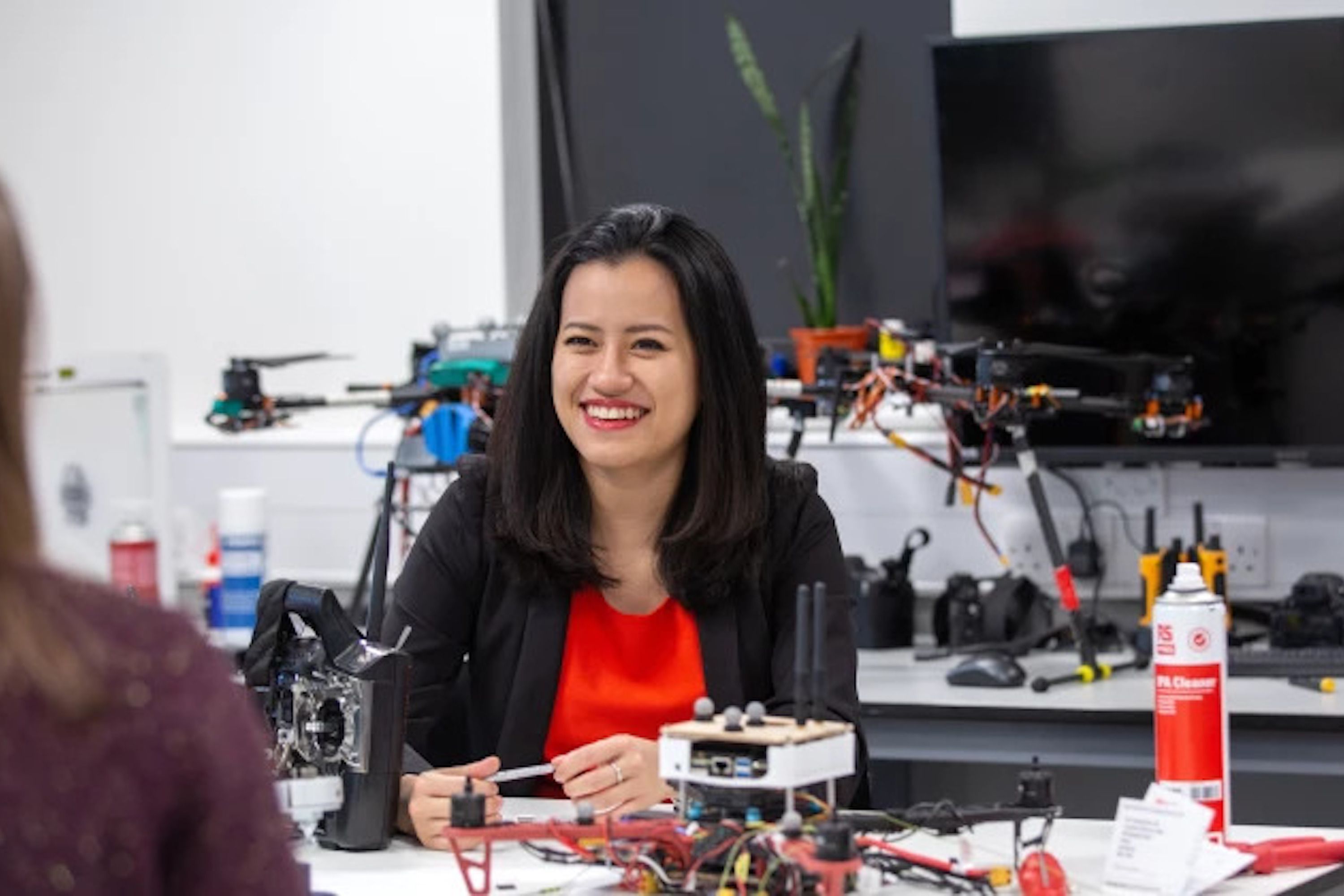
Request info
Learn more about studying at Imperial. Receive useful information about our life in our undergraduate community and download our latest Study Guide.

Events, tasters and talks
Meet us and find out more about studying at Imperial.

Course data
Terms and conditions
There are some important pieces of information you should be aware of when applying to Imperial. These include key information about your tuition fees, funding, visas, accommodation and more.
You can find further information about your course, including degree classifications, regulations, progression and awards in the programme specification for your course.
Programme specifications